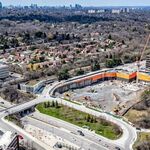GenerationW
Senior Member
^ Why are you wasting time responding to my gluttony? Get out there and solve!!!!!!!!!!!!!!!!
^ Why are you wasting time responding to my gluttony? Get out there and solve!!!!!!!!!!!!!!!!
My older friends and relatives don't remember in 1985 a person in Canada having to compete with someone in another country for a wage. In 1985, they didn't recall people having to work all hours of the evening or overnight just to make a living either. We are in an economic depression. I do not remember that happening in the 1980s - mid 1990s. A few hiccups sure, but nothing on this scale. Also medical, insurance, and gas were very inexpensive. The 90s felt good too to a lot of people because so many of the fears that had come to a head in the 80s seemed to be receding: the Cold War, recessions, unemployment, and people coming off welfare rolls.
This really puts into perspective how skewed your memory is. For much of the 1980s and 90s, the unemployment rate was over 10%. Meaning 1 out of 10 people could not find work. Today, in our "unprecedented depression", we have an unemployment rate of 8%, and that is currently dropping as I type this.
I'm calling bullshit on that one. If you want to look at the numbers, look at the employment rate. It's very strong. Are you going to tell me that this is falsified?And remember, that's "official gov't propaganda"--the real unemployment rate is at least double the official numbers....
Housing is cheaper in the suburbs of Toronto than in the 905. The Poverty by Postal Code report touched on this..The fact that more immigrants settle in the 905 has nothing to do with anything - this is a typical trend that can be observed throughout North America. What exactly would this indicate anyway? Property taxes are lower here - large houses are generally cheaper in the 905 verse central Toronto.
Glen. you talk about how the tax system in Toronto puts more of the burden on commerical developments - by it self this doesn't mean anything but compared to the 905 it does (and you're correct) ... again Toronto isn't competing with other cities in this regard, it's competing with our immediate surrounding neighbors.
I mentioned it it because pointing to the construction of these towers as proof of city flourishing is deceptive. But yes, they would not have been constructed without such breaks.Now when you mention the new office towers were built do to tax breaks, what's wrong with this exactly? This is exactly the sort of thing we need to attract more and more development - or are you just implying the *current* system as is would attract little.
You need to consider one thing when looking at unemployment data - and again this can mirrored throughout the world - the majority of the GTA's poorer residents settle in Toronto - as this is where most of the services are and this contributes to the unemployment rate - note I'm not talking about homeless people - they wouldn't be counted (you need to be actively looking for a job to be counted). As this spread increases between rich and poor - more of them will still decide to locate in Toronto - the amount of subsided housing outside of Toronto is honestly despicable - so the looking at the change in unemployment rates may be more valuable.
As one would expect. If there is no appetite to absorb the increasing taxes (5% per annum via capping plus budgetary increase), they will be reflected in decreasing net rents. Eventually they will be reflected in the assessment values.Another interesting figure from that report is net rents - there you can clearly see they've declined more in Toronto verse our neighbors.
btw ... we go on and on about the tax burden business face, but aren't the majority of businesses just paying rent i.e. they don't pay taxes - it's the land owner that would (i.e. the big, oxford / BF / allied / ...) but I guess they reflect these in the rents? I just mean, I'm surprised you'd ever hear a rental complain about taxes - they may complain about the rental rates (which may in turn be due to taxes)
Won't things cancel out once rental rates fall enough ?
True there would be so much more pressure to build residential instead- but if net rents fall ... I'm sure companies want to be in Toronto if it weren't for rent (and the tax is berried in this) due to many reasons (if you want to debate that save it for another thread) ... but I guess land would make a very bad investment *for commerical use*.
You've said this before but the few changes Toronto is trying to make in this regard i.e. balancing the ratio of burden to equalize it with the 905 is amounting to almost nothing?
I love how we're at 10% employment, (the rest of Ontario is even worse), yet the immigration floodgate continues to get larger. Can someone please fill me in here? By the time i'm out of University, I don't see myself having a job.




